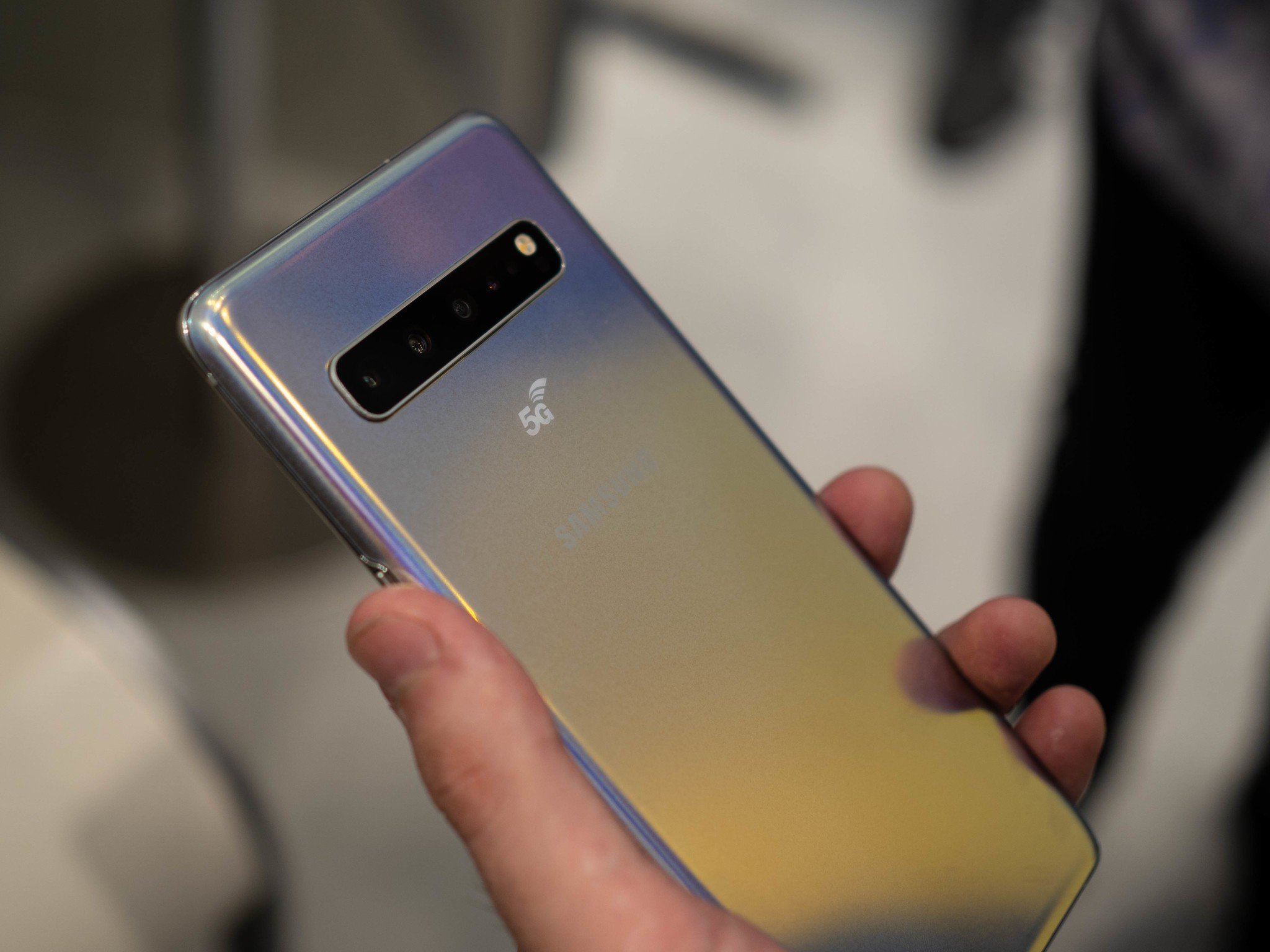We still don't know how much the Galaxy S10 5G will cost, nor when it will be released in the U.S. But the one thing I know is that if you're looking to "jump into 5G," as the carriers would very much like you to do, I wouldn't recommend buying it for that reason. As loud as the manufacturers and carriers have been about the next-generation wireless technology over the past few years, which rose to a crescendo this week at MWC, the reality is that very few people actually need to buy a 5G phone in 2019. Or, likely, 2020.
But Samsung, being the relatively insightful company it is, saw this coming a mile away, which is why it outfitted the S10 5G with a few niceties to not just separate it from its own smaller, cheaper S10 counterparts, but from the wider industry in general.
While I didn't get to use the S10 5G during my hands-on with the Galaxy S10 units prior to their announcement, Samsung had the upcoming super flagship up and working at its booth at MWC 2019, and I got to spend some time with it.
First, it's big: it's about the size of the Galaxy Note 9 and the same boxed-off shape, but thanks to the new Infinity-O display, the screen's now 6.7 inches at a tallish 19:9 aspect ratio. That also makes it a bit wider.
The camera tricks are neat, and the screen is delightfully oversized, but it's battery life, not 5G, that really makes this phone interesting.
The hole punch notch is a bit bigger than that of the Galaxy S10+ thanks to the addition of a time-of-flight sensor that reportedly improves portrait selfies by expanding depth information, but at first glance, I didn't notice the benefits.
The rear camera's ToF sensor gives the 5G version the only other camera feature not available on other S10 models: live bokeh while recording video. It's based on reference technology that Qualcomm introduced with the Snapdragon 855, and while it doesn't need the ToF sensor to function, in my tests it helped the foreground subject stay in focus while the background took on a purposed fog that, while artificial, looked quite good. Don't expect natural background blur here — this is all about making the person or people in the center of the frame stand out.
All of these extra camera features are great, and the big screen is fantastic for watching video, but here's why you actually want the Galaxy S10 5G. I've been using the Galaxy S10+ for just over four days now, and I'm insanely impressed with the battery. It's end-the-day-with-50%-battery good.
Connected to LTE networks, this phone will likely last for two days on a charge.
The Galaxy S10 5G should, especially when connected to standard LTE networks, take that even further. Its 4500mAh battery is 12.5% bigger than even the Galaxy S10+'s, and that should translate to two-day uptime for even the most extreme user.
When the S10 5G comes to Verizon in the first half of this year, followed by AT&T, Verizon, and Sprint in the second half, it'll be bundled with 5G service. I spent all week at MWC and still don't really have a sense of what that means for the average U.S. consumer who will inevitably be pressured an upsell when they walk into a carrier store in a city with any meaningful coverage.
Samsung did attempt to give visitors a taste of 5G by simulating a baseball game to a bunch of Galaxy S10 5G handsets. It showed the game split into two screens, one a broadcast stream and the other an interactive map where one could tap a part of the baseball diamond to change the camera orientation in real time. It was a neat concept, but one that doesn't seem out of reach in the current WiFi- or LTE-entrenched environment.
5G is coming; every U.S. carrier has outlined its launch plans for sometime in 2019. The Galaxy S10 5G will be out in Korea in April, and should launch in the U.S. shortly after that. But I suspect, when it's more widely available and subject to some awesome discounts, it'll be one of the most sought-after phones of 2019 for its battery life alone.








Tidak ada komentar:
Posting Komentar